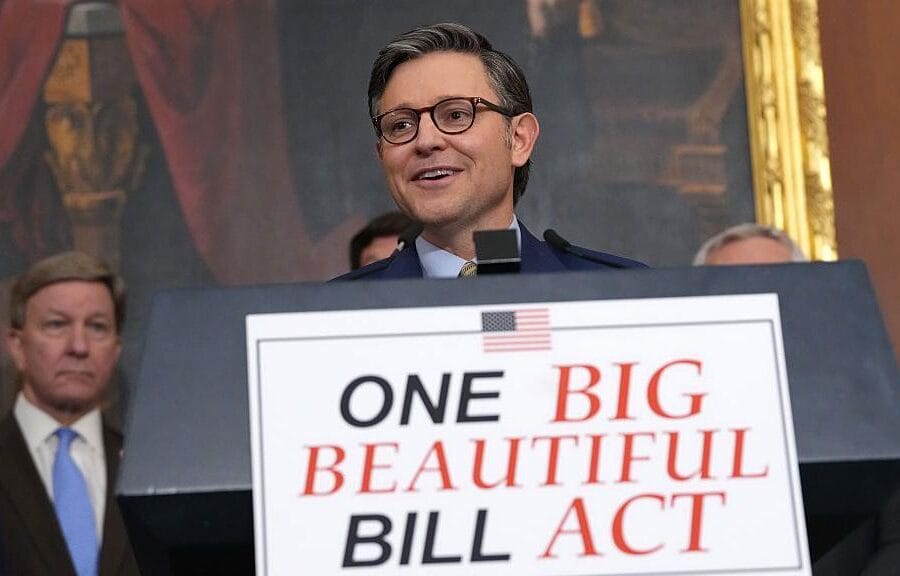With just one year under his belt, it took an hour and twenty minutes for the president to reflect last week on our nation’s latest milestones in his State of the Union address — the third-longest address in the last 50 years.
And while he did not directly address the critical issue of abortion, a thorough reflection on the state of the pro-life movement is equally warranted. America has lost about 60 million human beings to abortion in the 45 years since Roe v. Wade. That Supreme Court decision has prompted generations of advocates to work tirelessly over the years in statehouses and on the sidewalks of our communities to defend and advance the cause of life. And for 45 years, whether at the March for Life, on social media, or in conversations with colleagues and friends, everyday people with a deep and abiding sense of justice have shared scientific facts and defended fundamental rights with their fellow Americans.
As a result, some of the latest data indicates that more than 3-in-4 Americans, including 6-in-10 self-identifying pro-choice Americans, support major rollbacks on legal abortion, with restrictions in place at least as of the end of the first trimester. Sixty percent of the American public opposes taxpayer funding of abortions, and 83 percent oppose supporting abortion in other countries. And millennials are trending towards support for life, with more than half believing abortion should be illegal in most circumstances. This increasingly life-affirming mentality has helped bring America’s abortion rate to historic lows — the lowest rate since Roe v. Wade.
We are likewise at a time of unprecedented momentum in the passage of life-affirming laws. As the pro-abortion Guttmacher Institute noted in July 2017, over 30 percent of all such laws have been enacted in the last six years, more than 50 each year since 2011. Americans United for Life has dedicated much of our time and energy to building on this momentum by providing state legislatures the resources they need with our “pro-life playbook,” “Defending Life.”
The pro-life trend continues as more than 50 life-affirming state bills became law in 2017, including an Alabama law that allows health care providers to follow their consciences in refusing to perform abortions. We now have Arkansas laws both banning abortions that selectively target baby girls and requiring standard medical care for babies born alive during an abortion. Nebraska passed legislation requiring that mothers diagnosed with a lethal fetal anomaly be informed about perinatal hospice care, and Wyoming passed legislation — particularly meaningful to me based on my personal abortion experience — ensuring that abortionists allow mothers to see their babies on ultrasound.
While the U.S. Senate failed to pass a bill that would end abortions after five months of pregnancy, Kentucky and Iowa became the 20th and 21st states to pass this legislation at the state level. Ohio banned abortions targeting babies diagnosed with Down syndrome, and Texas had passed a fetal burial law, which upholds the dignity of unborn children.
Pro-life advocates have also made significant strides at the federal level in the last 12 months. In January 2017, President Trump reinstated and expanded the Mexico City Policy, which withholds funding from foreign and international non-governmental organizations that perform, counsel, or lobby for abortion. In April, the administration ceased funding the United Nations Population Fund due to its support of and complicity with China’s forced population control and abortion policies, and President Trump signed H.J. Res. 43 into law, allowing states to block Planned Parenthood from receiving federal Title X funds.
In October, HHS announced it would begin requiring insurers to bill separately for abortions, a historically unenforced ObamaCare rule. We learned in December that the Department of Justice had launched a federal investigation into Planned Parenthood’s practices and alleged sale of fetal tissue. The U.S. House of Representatives made headway in both defunding efforts and a five-month abortion limit. And of course, we cannot overlook the critical confirmation and investiture of Justice Neil Gorsuch to the U.S. Supreme Court.
The laws we pass, inspired and sustained by the majority of Americans who support life, have a concrete effect — they save lives. Such laws include parental involvement legislation, which results in a double-digit drop in abortions sought by teen girls, and the Hyde Amendment, which Americans United for Life successfully defended before the Supreme Court in Harris v. McRae and which has saved more than 2 million lives since its creation.
As famed medical reformer and author Oliver Wendell Holmes, Sr., wrote in his collection of essays “The Autocrat of the Breakfast-Table,” “To reach the port … we must sail sometimes with the wind and sometimes against it — but we must sail, and not drift, nor lie at anchor.” For the pro-life movement, we have weathered the storms and sometimes-adverse tides as we work toward the day when everyone is welcomed in life and protected in law.
Looking forward, we have dozens of life-affirming bills on the horizon at the state level. And at the federal level, we are seeing real progress on born-alive infant protections, a sex-selection ban, Hyde Amendment permanency, and Planned Parenthood defunding that would reallocate taxpayer dollars to the community health centers that provide comprehensive care and outnumber Planned Parenthood locations 20 to 1. And the U.S. House has certainly done its part to move pain-capable five-month limitations forward — we just need our Senators to take heed and listen to the will of their constituents.
We have a long way to go, but we are taking this current while it serves. And in 2018, the wind is at our back.
Catherine Glenn Foster, M.A., J.D., is president and CEO of Americans United for Life.
Originally published in The Hill, on February 2, 2018.



